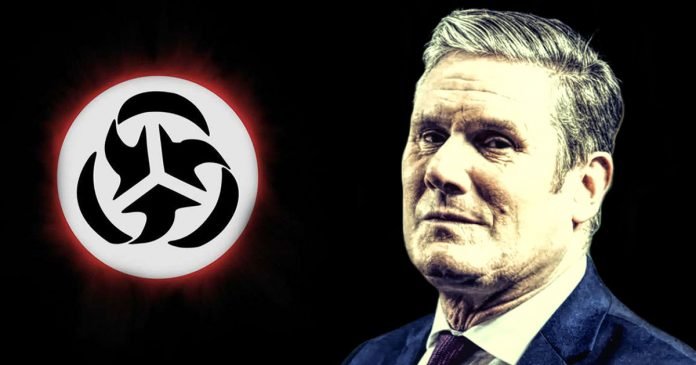The Labour Party must move away from being a “Party of protest” by order of the oligarchy.
Sir Keir Starmer’s latest decree states, The Labour Party must move away from being a “party of protest” in order to win elections and “hand power to working people”.
It also appears protest covers a magnitude of actions including workers withdrawing their labour and carrying out the legitimate right to strike.
Writing for The Mirror this weekend the Labour leader stated: ” “I am now leading a Labour Party that wants to change lives and give Britain the fresh start it needs. That means turning from a party of protest into a party that can win power – then hand that power to working people. I make no apologies for that.
Of course, that all sounds very ‘pragmatic’, pragmatic, being the latest centrist buzzword from Starmer Central, however, when you take into account his views on picketing and lack of support for striking workers you begin to question his motives, especially when you look at his own history of protest.
His intervention comes as part of an ongoing debate between Labour’s left and right wingers about how to respond to the cost of living crisis, amid growing threats of further industrial action from public sector workers.
The country looks set to see ongoing rail strikes from transport unions, with union leaders calling for deserved pay rises more in tune with soaring inflation levels.
It comes as the rate at which prices rise has hit a 40-year high of 9.4% and is expected to grow further over the course of the year.
Industrial action is set to grow as Government pay offers to teachers, nurses, police officers and other key public sector industries have been rejected or condemned by unions as failing to address the crisis, with many in the process of or suggesting plans to consult their members on whether to strike later in the year.
It’s easy to call out the hypocrisy in Starmer’s stating Labour should not be a Party of protest when he has taken every photo op possible to ensure he can draw on the occasion or discard them as his needs be.
However, even without the scepticism, this is Starmer setting out his version of the future.
A future that does not tolerate protest, public dissent or even legitimate union strike action.
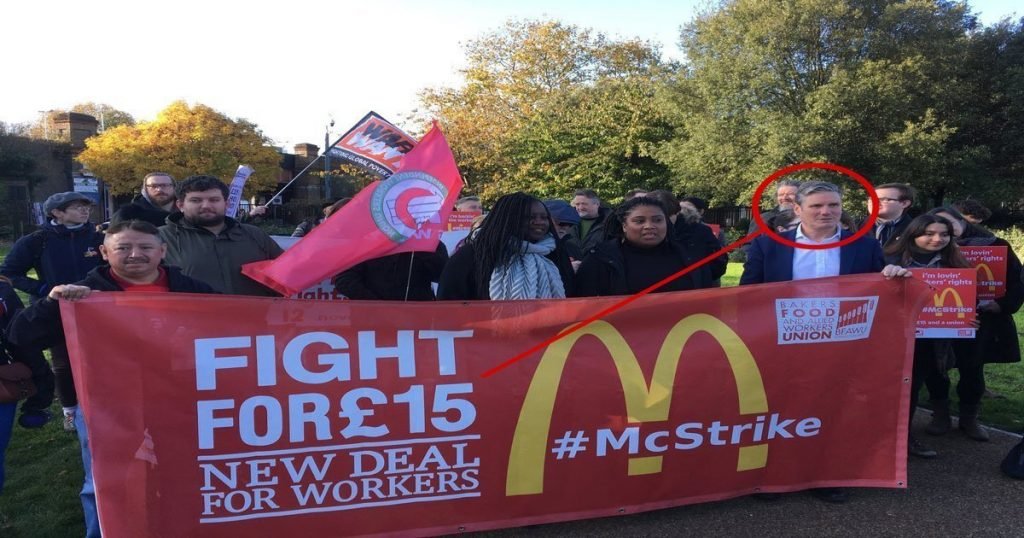
Again, Starmer would like us to shove down the memory hole a thousand years of protest. Protest that has brought about social change and given birth to democracy such as it we have today.
Yes, pragmatism can hide a whole bunch of sins; Pragmatism is a philosophical tradition that considers words and thought as tools, however, action and protest have been the real tools of the working class movement, having had more impact on life-changing events than any form of pragmatism.

Protests are very freighting to the ruling class.
The working class have had a history of protest to bring about real changes extending over a thousand years that have included, the Magna Carta (1215), The Peasants’ Revolt (1381), The Poll Tax Riots (1381 and 1990) The Levellers (1647) The Luddites (1812) The Peterloo Massacre (1819) The Tolpuddle Martyrs (1833) The Chartist movement (1838) The General Strike (1842) West Yorkshire Woollen Weavers’ strike of (1875) Match Women’s Strike (1888) Women’s Suffrage Movement (1897 – 1928 and on) The Kinder Scout Mass Trespass (1932) The Miners’ Strike of 1984/85, Anti-war protests (2003) The UK Occupy Movement 2011 and on and on and on.
These protests and many more around the world have not only disrupted the status quo but in some cases removed the establishment, while in others they have been the starting points of both Republics and democracies as witnessed in the English civil war, the French, American and Russian revolutions.
After all, let’s face it the working class has never been given anything worth having, we’ve fought for all we’ve got.
Who do you serve?
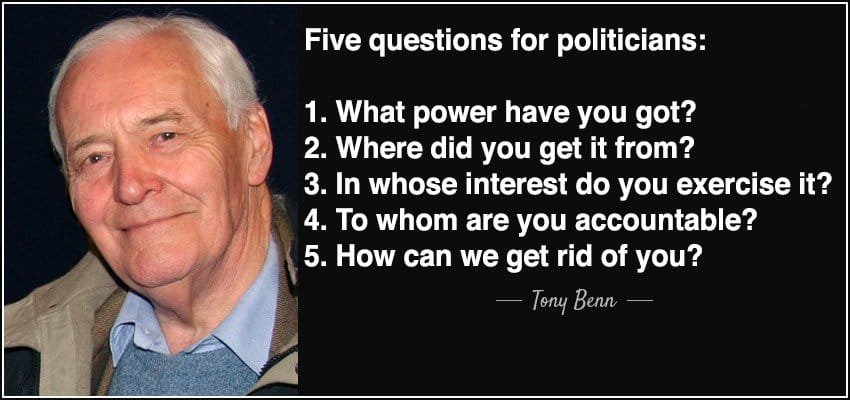
When all is said and done Sir Keir Starmer has a mandate, however, that mandate does not come from his constituents, the Labour Party or its members nor does it come from the British people in general.
That mandate comes from the elitist non-government organisation that has set out its own world vision. An organisation that opposes protest and public demonstration, an organisation whose vision does not include striking workers or industrial action of any sort.
Starmer is a Trilatralist and their worldview does not tolerate dissent.
Starmer and the Trilateral Commission have made it their mandate to stop both protest and civil disruption, no matter the reason. This includes industrial action, after all, that organisation relies on the smooth turning of the cogs of industry, they demand efficiency all without the inconvenience of workers picketing, protesting, or fighting for change of any sort.
This is the new world of free trade, impersonal faceless globalisation, this is a return to the slave pens of the satanic mills where workers are valued as nothing more than a commodity.
THE TRILATERAL COMMISSION!
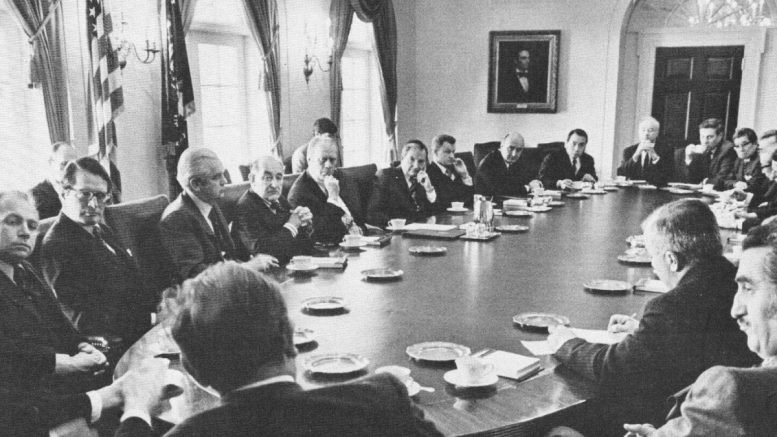
Plus Excerpted from Radical Priorities, 1981 – Noam Chomsky
On paper, the Trilateral Commission is an organisation of private citizens founded to confront challenges posed by the growing interdependence of the United States and its principal allies (Canada, Japan, and the countries of western Europe) and to encourage greater cooperation between them.
The Trilateral Commission is headed by three regional chairs (for Europe, North America, and the Asia-Pacific region), who are assisted by several deputies, and an executive committee. The entire membership meets annually (the location rotating among the three regions) to consider reports and debate strategy. Regional and national meetings are held throughout the year. Regional headquarters are in Paris, Washington, D.C., and Tokyo.
The Trilateral Commission was founded at the initiative of David Rockefeller in 1973. Its members are drawn from the three components of the world of capitalist democracy: the United States, Western Europe, and Japan. Among them are the heads of major corporations and banks, partners in corporate law firms, MPs, and Senators, all highly influential people from business and politics.
The Commission was soon perceived as constituting an embryonic or even shadow world government. Along with the 1940s project of the Council on Foreign Relations (CFR), directed by a committed “Trilateralist” and with numerous links to the Commission, the project constitutes the first major effort at global planning since the War-Peace Studies program of the CFR during World War II.
It is sometimes considered a “rich men’s club” with few women members; it is publicly unaccountable. Its members include influential current politicians, banking and business executives, media, civic, and intellectual leaders and several union chiefs. It can boast of having both former US presidents and British prime minister as members along with serving politicians such as Sir Keir Starmer and Lord Peter Mandelson, it also has some very infamous members such as Jeffrey Epstein. Epstein coincidentally was also a member of the CFR as is the now serving president Joe Biden.
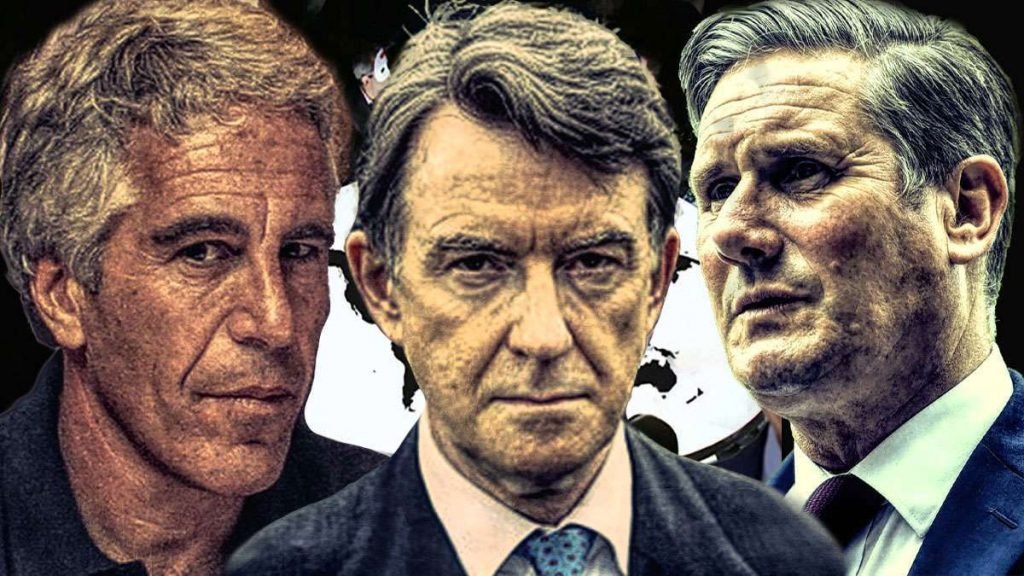
The Trilateral Commission claims it espouses support for private enterprise, economic freedom and stronger collective management of global problems. The new “Trilateralism” reflects the realisation that the international system now requires “a truly common management,” as the Commission reports indicate. The trilateral powers must order their internal relations and face both the Russian bloc, now conceded to be beyond the reach of Grand Area planning, and the Third World.
Chomsky states: In this collective management, the United States will continue to play the decisive role. As Kissinger has explained, other powers have only “regional interests” while the United States must be “concerned more with the overall framework of order than with the management of every regional enterprise.” If a popular movement in the Arabian Peninsula is to be crushed, better to dispatch US-supplied Iranian forces, as in Dhofar. If passage for American nuclear submarines must be guaranteed in Southeast Asian waters, then the task of crushing the independence movement in the former Portuguese colony of East Timor should be entrusted to the Indonesian army rather than an American expeditionary force. The massacre of over 60,000 people in a single year will arouse no irrational passions at home and American resources will not be drained, as in Vietnam. If a Katangese secessionist movement is to be suppressed in Zaire (a movement that may have Angolan support in response to the American-backed intervention in Angola from Zaire, as the former CIA station chief in Angola has recently revealed in his letter of resignation), then the task should be assigned to Moroccan satellites forces and to the French, with the US discreetly in the background. If there is a danger of socialism in southern Europe, the German proconsulate can exercise its “regional interests.” But the Board of Directors will sit in Washington….
This is a new Rome an invisible Empire run by its members acting as consuls to that specific region.
The Trilateral Commission has issued one major book-length report, namely, The Crisis of Democracy (Michel Crozier, Samuel Huntington, and Joji Watanuki, 1975). Given the intimate connections between the Commission and the Carter Administration, the study is worth careful attention, as an indication of the thinking that may well lie behind its domestic policies, as well as the policies undertaken in other industrial democracies in the coming years.
The governability of the democracies.
The Commission’s report is concerned with the “governability of the democracies.” The Commission’s report is concerned with the “governability of the democracies.” Its American author, Samuel Huntington, was a former chairman of the Department of Government at Harvard, and a government adviser. He is well-known for his ideas on how to destroy the rural revolution in Vietnam. He wrote in Foreign Affairs (1968) that “In an absent-minded way the United States in Vietnam may well have stumbled upon the answer to ‘wars of national liberation.'” The answer is “forced-draft urbanization and modernisation.
In short, Huntington is well-qualified to discourse on the problems of democracy.
The report argues that what is needed in the industrial democracies “is a greater degree of moderation in democracy” to overcome the “excess of democracy” of the past decades.
The report makes the claim the crisis of democracy in both Europe and the US has been an excess of demands and protests by unions and civil rights movements, the claim is they disrupt the good governance but more so the flow of economic commerce.
The cure for democracy is more democracy. He said.
No, the cure for this democracy is less democracy. He answered
The Trilatralist see the threat to the governability of democracy as posed by the “previously passive or unorganized groups in the population,” as stated by Huntington these groups include “blacks, Indians, Chicanos, white ethnic groups, students and women — all of whom became organised and mobilized in new ways to achieve what they considered to be their appropriate share of the action and of the rewards.”
Still another threat to democracy in the eyes of the Commission study is posed by “the intellectuals and related groups who assert their disgust with the corruption, materialism, and inefficiency of democracy and with the subservience of democratic government to ‘monopoly capitalism'” (the latter phrase is in quotes since it is regarded as improper to use an accurate descriptive term to refer to the existing social and economic system; this avoidance of the taboo term is in conformity with the dictates of the state religion, which scorns and fears any such sacrilege).
Intellectuals come in two varieties, according to the trilateral analysis. The “technocratic and policy-oriented intellectuals” are to be admired for their unquestioning obedience to power and their services in social management, while the “value-oriented intellectuals” must be despised and feared for the serious challenge they pose to democratic government, by “unmasking and delegitimization of established institutions.”
Lively discussion this morning @ Trilateral Commission. Different points of view is an understatement: different visions for Britain! https://t.co/4kVl9HIDbv
— Keir Starmer (@Keir_Starmer) November 4, 2017
The authors do not claim that what the value-oriented intellectuals write and say is false. Such categories as “truth” and “honesty” do not fall within the province of the apparatchiks. The point is that their work of “unmasking and delegitimization” is a threat to democracy when popular participation in politics is causing “a breakdown of traditional means of social control.” They “challenge the existing structures of authority” and even the effectiveness of “those institutions which have played the major role in the indoctrination of the young.” Along with “privatistic youth” who challenge the work ethic in its traditional form, they endanger democracy, whether or not their critique is well-founded. No student of modern history will fail to recognize this voice.
What must be done to counter the media and the intellectuals, who, by exposing some ugly facts, contribute to the dangerous “shift in the institutional balance between government and opposition”? How do we control the “more politically active citizenry” who convert democratic politics into “more an arena for the assertion of conflicting interests than a process for the building of common purposes”? How do we return to the good old days when “Truman, Acheson, Forrestal, Marshall, Harriman, and Lovett” could unite on a policy of global intervention and domestic militarism as our “common purpose,” with no interference from the undisciplined rabble?
The crucial task is “to restore the prestige and authority of central government institutions, and to grapple with the immediate economic challenges.” The demands on government must be reduced and we must “restore a more equitable relationship between government authority and popular control.” The press must be reined. If the media do not enforce “standards of professionalism,” then “the alternative could well be regulation by the government” — a distinction without a difference, since the policy-oriented and technocratic intellectuals, the commissars themselves, are the ones who will fix these standards and determine how well they are respected. Higher education should be related “to economic and political goals,” and if it is offered to the masses, “a program is then necessary to lower the job expectations of those who receive a college education.” No challenge to capitalist institutions can be considered, but measures should be taken to improve working conditions and work organisation so that workers will not resort to “irresponsible blackmailing tactics.” In general, the prerogatives of the nobility must be restored and the peasants reduced to the apathy that becomes them.
This is the ideology of the liberal wing of the state capitalist ruling elite, and, it is reasonable to assume, its members who now staff the national executive across the three spheres of the Trilateral…
Noam Chomsky says the Trilateral commission’s aim is to bring about moderation in democracy to allow only the elite to vote, one where everything has a place and we the workers should know our place.
This is not only a backwards step in democracy and the working class movement, it’s two steps closer to tyranny.
“it is not true that good can follow only from good and evil only from evil, but that often the opposite is true. Anyone who fails to see this is, indeed, a political infant.” ― Max Weber
It’s not only the Tories trying to quell the working class, the masses, it’s the very people that should be representing us, for those that have eyes to see it is very clear the Labour Party is truly in the iron grip of the oligarchy and no amount of wishful thinking will win it back.
Support Independent Journalism Today
Our unwavering dedication is to provide you with unbiased news, diverse perspectives, and insightful opinions. We're on a mission to ensure that those in positions of power are held accountable for their actions, but we can't do it alone. Labour Heartlands is primarily funded by me, Paul Knaggs, and by the generous contributions of readers like you. Your donations keep us going and help us uphold the principles of independent journalism. Join us in our quest for truth, transparency, and accountability – donate today and be a part of our mission!
Like everyone else, we're facing challenges, and we need your help to stay online and continue providing crucial journalism. Every contribution, no matter how small, goes a long way in helping us thrive. By becoming one of our donors, you become a vital part of our mission to uncover the truth and uphold the values of democracy.
While we maintain our independence from political affiliations, we stand united against corruption, injustice, and the erosion of free speech, truth, and democracy. We believe in the power of accurate information in a democracy, and we consider facts non-negotiable.
Your support, no matter the amount, can make a significant impact. Together, we can make a difference and continue our journey toward a more informed and just society.
Thank you for supporting Labour Heartlands
